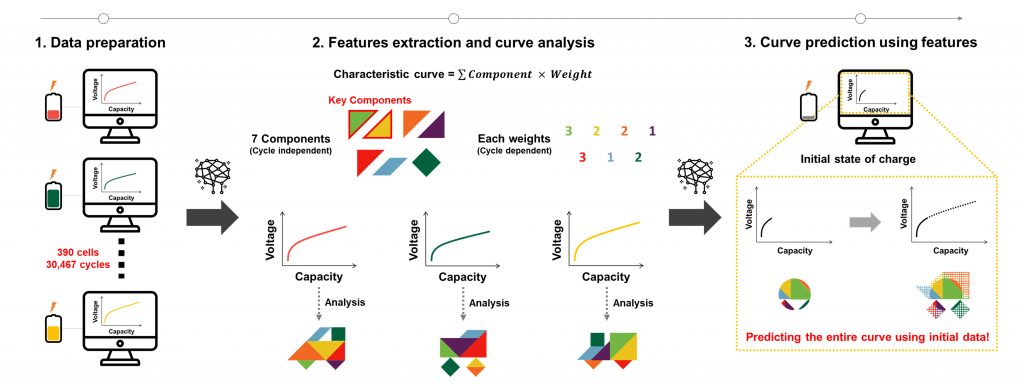Fusion of experimental data and AI analysis identifies degradation causes and reaction mechanisms in LMR cathodes
Data-driven prediction and anomaly detection models expected to improve reliability and performance of next-gen battery materials
POSCO Holdings’ Future Technology Research Institute has successfully identified the causes of performance degradation and the reaction mechanisms of LMR (Lithium-Manganese-Rich) cathode materials, recognized as a key component of next-generation secondary batteries, through data-driven analysis. The results of this study were published in Issue 18 of Energy & Environmental Science, a globally renowned journal in the field of energy and environment, on May 7, 2025.
LMR cathode materials are next-generation battery components designed to reduce the use of expensive cobalt and nickel by incorporating abundant and low-cost manganese, thereby enhancing cost competitiveness. These materials boast an energy density that is 33% higher than that of conventional LFP (Lithium Iron Phosphate) batteries. As a result, they are expected to not only extend the driving range of electric vehicles but also offer significant value in post-use recycling. With global automakers such as GM and Ford formally adopting LMR batteries, the market expansion is progressing rapidly.
However, LMR batteries have faced commercialization challenges due to voltage drop during charge and discharge cycles, which leads to performance degradation. To address this issue, researchers at the Future Technology Research Institute analyzed over 30,000 battery charge datasets using AI, integrating them with various experimental data to identify the degradation causes and underlying reaction mechanisms of LMR materials. In particular, they applied dimensionality reduction techniques to pinpoint key factors affecting battery performance and linked these to observable phenomena such as manganese transformation and increased electrical resistance.
The data-driven model developed through this study serves as a crucial tool for predicting the performance of LMR batteries in advance and detecting anomalies at an early stage. It is expected to significantly enhance the reliability and safety of electric vehicle batteries in the future.
Building on the outcomes of this research, POSCO Holdings presented studies on the application of machine learning for battery material design and performance enhancement, as well as microstructure-based material optimization, at the Korean Institute of Metals and Materials and the AI4AM international conference in April. Further, the company is scheduled to present its AI-driven battery materials research at the Korean Institute of Chemical Engineers in October, and the latest research findings published on arXiv will be released soon.
Sang-cheol Nam, Head of the LIB Materials Research Center at the Future Technology Research Institute, stated, “We plan to continuously expand research that integrates AI with experimental data to drive the development of high-performance, high-reliability secondary battery materials.” He added, “By reinforcing data-driven analysis not only for LMR cathode materials but also for a wide range of battery materials, we aim to strengthen our competitiveness in the global battery market.”
In an interview, Research Director Jeong-jin Hong stated, “POSCO Holdings is continuously pursuing technological innovation across next-generation battery and energy materials through collaboration not only with various group affiliates such as POSCO Future M, but also through partnerships with external companies.” He added, “By integrating energy materials research with AI, we are leading advancements not only in battery technology but across a broad spectrum of energy-related fields, and we are actively sharing these research outcomes with both industry and academia.” He emphasized, “We will continue to expand collaboration and research across various domains to further strengthen our competitiveness in the global battery market.”

▲ Conceptual diagram of the AI-based degradation mechanism analysis and prediction model for LMR cathode materials developed by POSCO’s Future Technology Research Institute.

▲ Leading researchers: (From left) Dr. In-chul Park and Dr. Ji-eun Kim of POSCO Holdings, and Researcher In-jun Choi of RIST.
